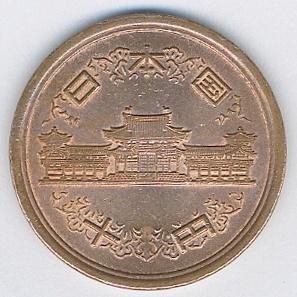Like this post? Help us by sharing it!
Yesterday a story appeared on our company news channel reporting that yet again Tokyo and Osaka are the most expensive cities in the world, this time focusing on the cost of living for expats. This sort of story really gets my goat as I always feel they tell just half the story.
Japan the most expensive? Well, in some ways it is. For example, the Ginza in the heart of Tokyo is still has the highest market value per square meter of any business area in the world (approx 50 million yen – $500,000 USD) and that is down nearly four times from peak values in the early 1990’s. Rent in Tokyo is also high, especially if you wish to live within the inner circuit of the Yamanote Line.
However, for visitors Japan is nothing like the expensive destination it is often thought to be; Conveyor sushi restaurants serve plates from as little as 100 yen (approx $1 – and that is for pretty decent stuff) and a bowl of steaming ramen and a beer will rarely cost more than 1200 yen (approx $12). Entrance fees are low and there are lots of free attractions in every Japanese town and city. Hotels are also much more affordable than in London or New York which make Tokyo look cheap by comparison as a place for tourists to visit. There is also a failure to take into account cultural aspects of these reports. It is property value that often makes Tokyo and Osaka look very expensive. But this is based on what space you get for your money and fails to take into account that the Japanese traditionally live in smaller spaces than the British or even more markedly, the Americans.
Personally I am extremely interested in the comment in the news story from Nick Marr at Homesgofast.com who mentions significant increases in the cost of living. This is contrary to everything I have been hearing from my friends in Japan: Yes, money is tight because of wage freezes and unemployment but Japan has entered another period of deflation. Prices are falling, not rising!
Finally, Japan has actually just come out of a period of being the cheapest first world country in the world (I failed to see a glut of articles highlighting this fact back in 2007) and this statistic is purely driven by exchange rates. For example, two years ago £1 would buy 245 JPY. Now that figure is 150. Of course this makes Japan seem more expensive when measuring costs in dollars or pounds. However, at that time the yen was undervalued and a readjustment was inevitable. Now I feel the yen is over valued and a subsequent readjustment in the opposite direction will occur. Overall Japan should cost pretty much the same as any developed nation to live in.
All in all yes Japan is more expensive than the rest of Asia but Japan is a first world nation and the world’s second largest economic power. And in comparison with western nations of similar economic development it is not expensive at all.
If you are looking to visit Japan on a budget check out our Price Cruncher package which offers 7 nights in Japan from only £600 per person.


